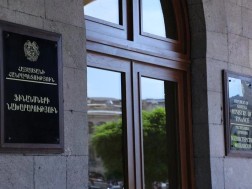A study conducted by the "Luys" Foundation on the execution of Armenia's state budget for the first nine months of 2024 has highlighted significant shortcomings in the implementation of government programs and debt management amidst slowing economic growth.
Between January and September 2024, total and tax revenues fell short of the adjusted plan by 6.4% and 7.8%, respectively. Acknowledging the risks, the government has already tightened tax regulations, significantly reducing the range of activities eligible for simplified tax regimes for micro-enterprises. Analysts warn this could pose serious challenges for small and medium-sized businesses.
Particularly concerning, according to "Luys" analysts, is the underperformance in capital expenditures, which exceeds the shortfall in current expenditures by 3.2 times. “This not only points to inefficiencies in the public administration but also undermines the country’s economic growth potential,” the report states.
The most problematic areas were urban development, high technology, and environmental protection programs, with implementation rates as low as 31%. A stark example is the school and kindergarten construction and modernization initiative: of the planned $121 million for the nine-month period, only $20 million was utilized, casting doubt on the feasibility of building 300 schools and 500 kindergartens as announced.
“Some critical programs have seen virtually no progress: the defense industry development program was not implemented at all, while the digital transformation program achieved only 2.6% of its targets,” the study notes.
Armenia's public debt increased by 5.5% over the first nine months of 2024, exceeding $12.5 billion. The share of domestic debt in the government’s borrowing portfolio reached a record high of 51.8%, which will inevitably increase debt servicing costs due to higher interest rates.
“Amid these challenges, there is a persistent slowdown in economic growth: 6.6% in Q1 2024 compared to 11.8% a year earlier, 6.4% in Q2 compared to 9.3%, and a preliminary estimate of 5.2% in Q3 compared to 7.4%,” the foundation’s analysts report.
Experts attribute the slowdown to waning positive external factors related to the Russia-Ukraine conflict and note the lack of visible, effective government measures to support the economy.
















